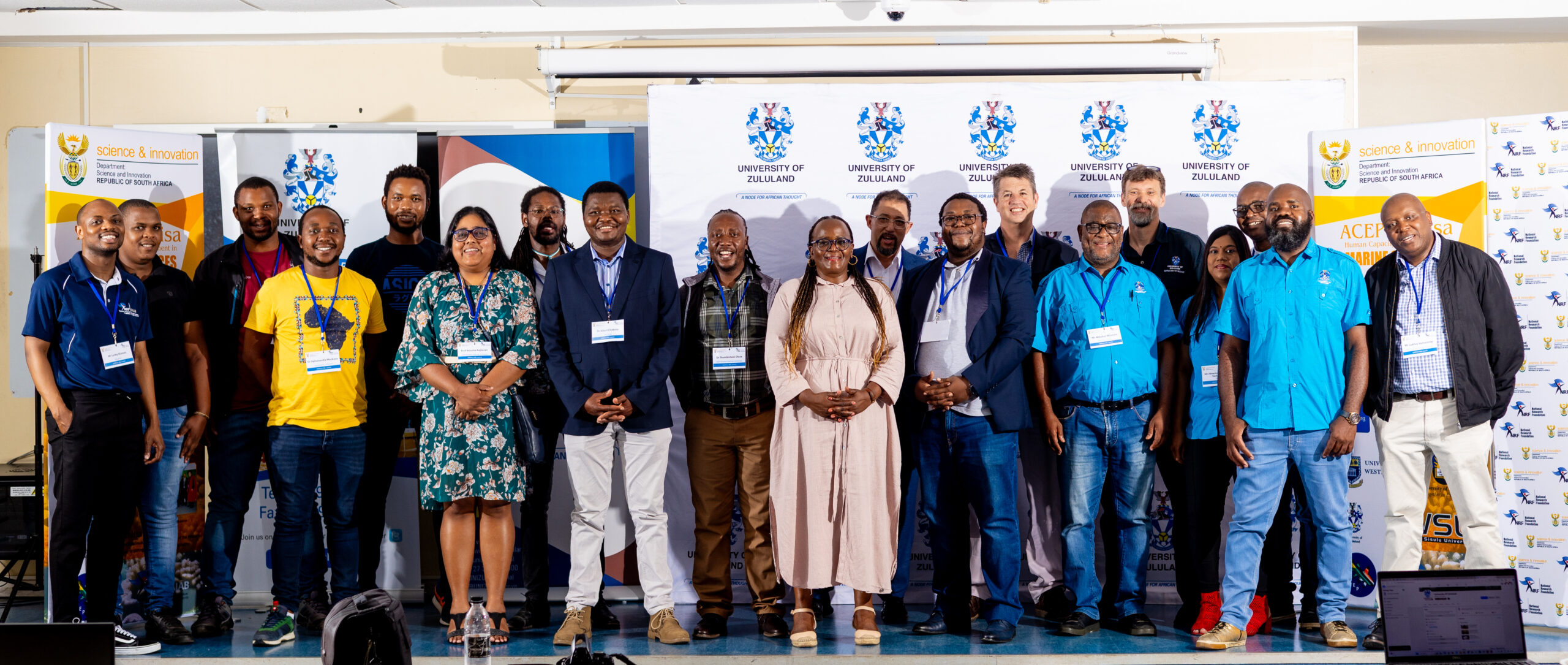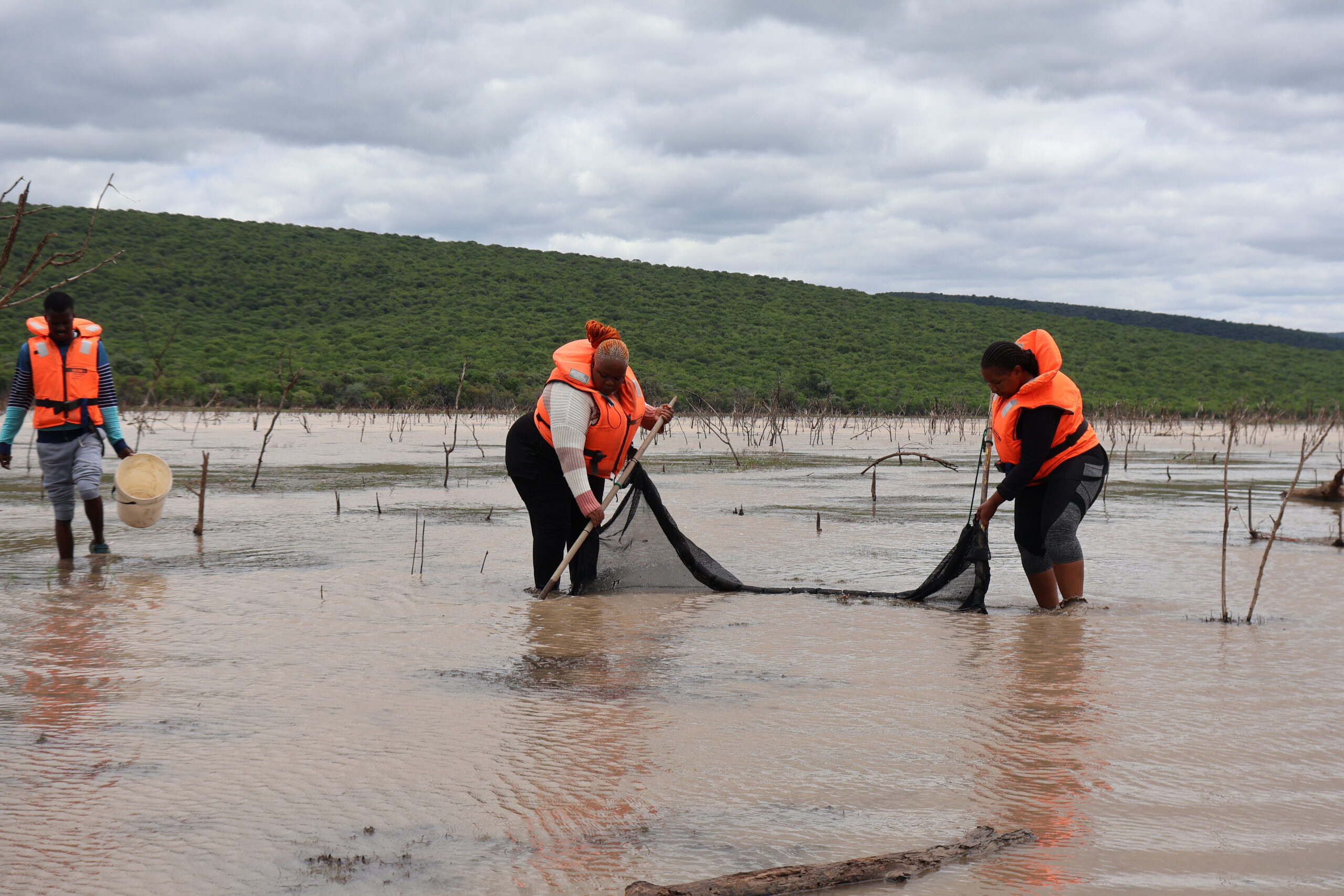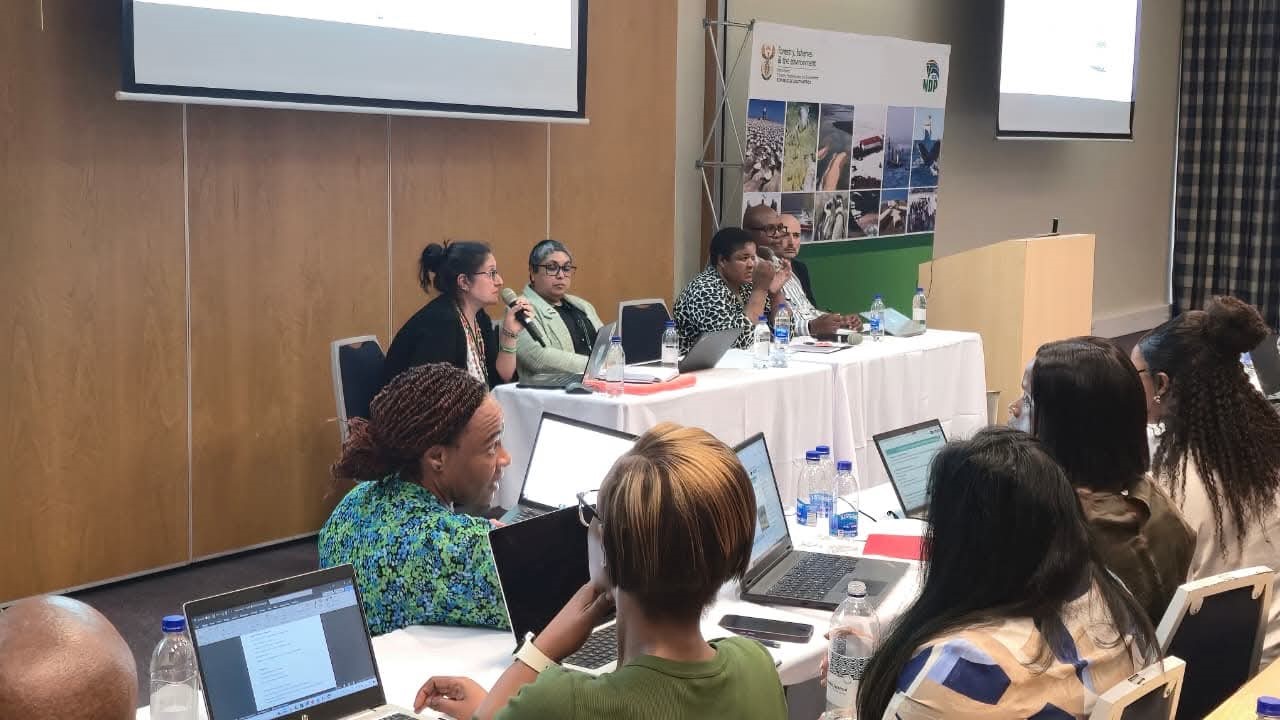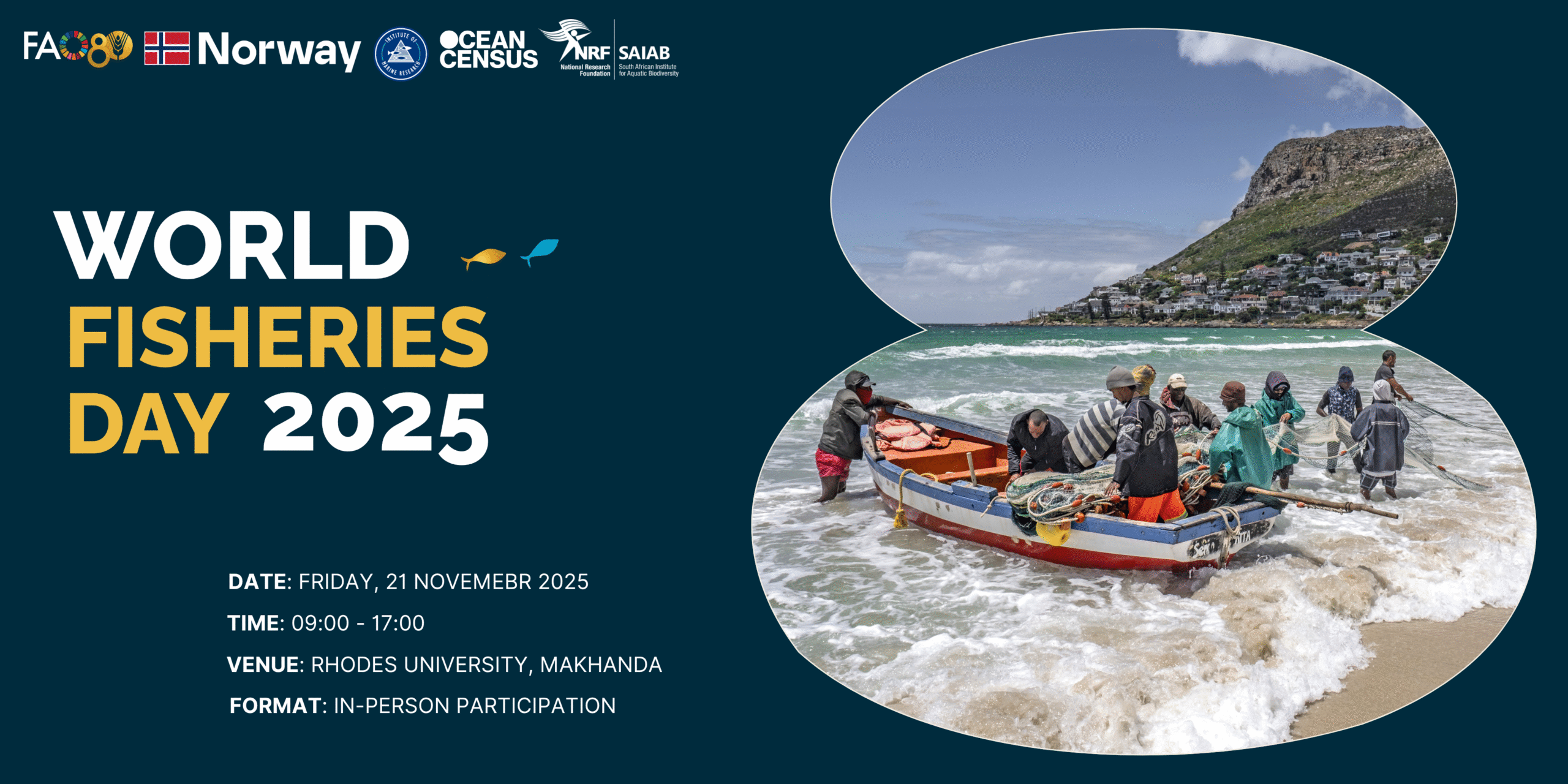– Lucky Dlamini
The Zoology Department at the University of Zululand (UNIZULU) achieved a significant milestone on December 5, 2023, with the inauguration of the DSI/NRF-SAIAB/UNIZULU Joint Marine Laboratory for Marine and Estuarine Ecotoxicology. Situated on the KwaDlangezwa Campus, this cutting-edge facility is made possible through sponsorship from the Department of Science and Innovation (DSI) and the National Research Foundation (NRF) as part of the Joint Marine Laboratories Programme. The five-year initiative aims to bolster marine science research in historically disadvantaged institutions, including UNIZULU, University of Western Cape (UWC), University of Fort Hare (UFH), and Walter Sisulu University (WSU).
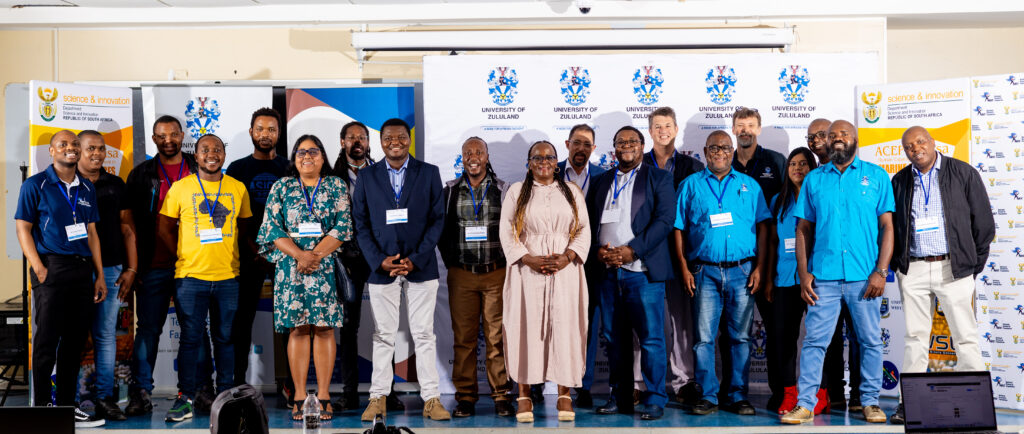
Administered by the NRF-South African Institute for Aquatic Biodiversity (SAIAB), the Joint Marine Laboratories Programme oversees collaborations and laboratory steering committees across the participating institutions. UNIZULU’s launch of the laboratory follows those of UWC and UFH, signaling a promising era for marine and estuarine pollution research, according to Dr Ntuthuko Masikane, Zoology Department Lecturer and Principal Investigator of the laboratory.
Investing in research and science infrastructure is crucial for advancing marine science. This includes research vessels, laboratories, and technology to better understand and manage the marine environment. South Africa also places a great importance on development of skilled workforce in marine science and conservation. This includes training researchers, technicians to effectively manage and protect marine resources. The laboratories were all selected to answer key challenges faced by South Africans.
The Marine and Estuarine Ecotoxicology Laboratory is split into two sections: The Analytical Lab is where all the analysis will take place. This is also the place where all the capital equipment will be housed. Some of the capital equipment in this lab will included the ICP spectrophotometer, the Total Organic Carbon (TOC) analyser, microwave digester, AA spectrophotometer and the water purification system.
The Exposure Laboratory is where all the experiments (ecophysiology experiments, marine and estuarine bioassays) will be conducted. The major equipment in this laboratory includes existing infrastructure (e.g. controlled environment rooms) as well as small equipment (e.g. micro-osmometer, microplate reader).
Dr Masikane highlighted the historical prominence of South Africa in marine pollution research and emphasised the need to revitalize this field. The laboratory, equipped with state-of-the-art tools aims to quantify metal concentrations in coastal environments and organisms.
“We are developing a research programme for coastal lakes in KZN that will kick-start in 2024. We are hoping to collaborate with UKZN and KZN Wildlife on this project,” said Dr Masikane.
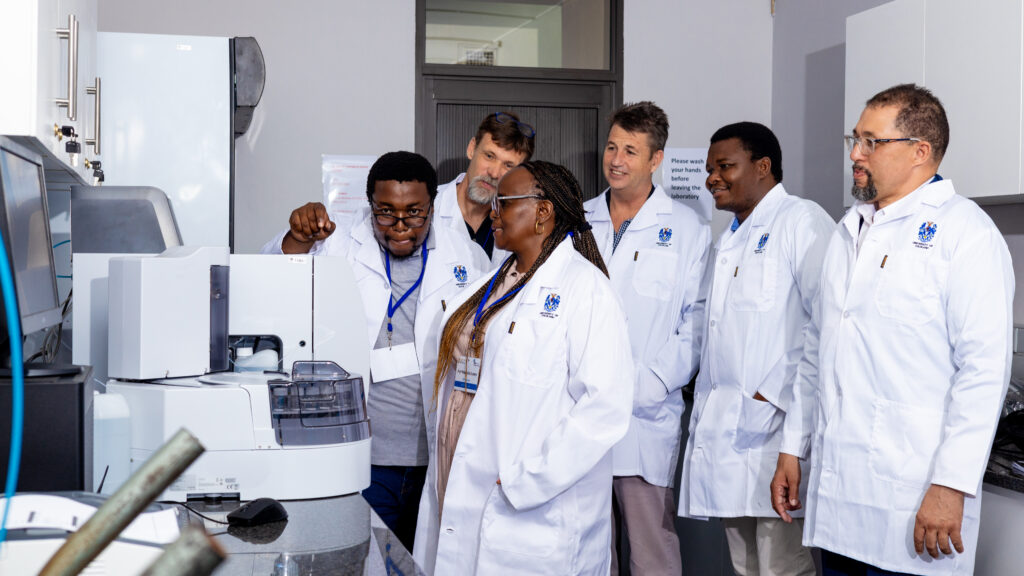
The laboratory will also contribute to societal outcomes of the UN Decade of Ocean Science for Sustainable Development specifically “A Clean Ocean” (SDGs 6, 13 and 14) and will ensure the relevance of research for a better society, said Professor Nokuthula Kunene, UNIZULU Deputy Vice-Chancellor: Research and Innovation. The laboratory not only prioritises impactful research but also serves as a conduit for UNIZULU postgraduate students, fostering their scholarly development and exposure to advanced research equipment. Furthermore, expressing her elation at witnessing the long-awaited launch, thanking the DSI and NRF-SAIAB for their contributions.
Dr Angus Paterson, NRF Acting DCEO highlighted during his talk that, “the launch of the laboratory is in line with the NRF Vision 2030, which is grounded on Transformation, Impact Excellence and Sustainability (TIES),” to advance the impact of research.
Dr Albert Chakona, Acting Managing Director at NRF-SAIAB, expressed his excitement of being part of this transformative journey, and anticipates ground-breaking contributions to reshape understanding and promote effective stewardship of oceans. He furthermore stressed the importance of collaboration and sharing facilities among historically disadvantaged institutions, emphasising that “collaboration amplifies impact.”
Dr Gilbert Siko, Director of Marine and Polar Science at DSI described the Joint Marine Laboratories as “building blocks for brighter things, symbolising capacity development, innovation, and socioeconomic impact in South Africa.”
Following the UNIZULU laboratory launch will be the launch of the WSU laboratory, specialising in coastal livelihoods research, is expected in early 2024, contributing to the broader objectives of the Joint Marine Laboratories Programme.
[This article includes information sourced from the UNIZULU news page covering the launch of the JML, and certain sections have been adapted for clarity and brevity: https://www.unizulu.ac.za/zoology-department-launches-joint-marine-laboratory-in-marine-and-estuarine-ecotoxicology/]
